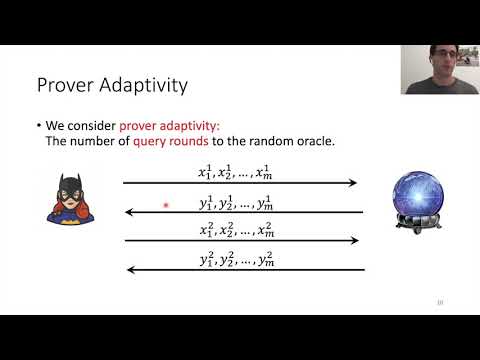CryptoDB
Barriers for Succinct Arguments in the Random Oracle Model
| Authors: | |
|---|---|
| Download: | |
| Presentation: | Slides |
| Abstract: | We establish barriers on the efficiency of succinct arguments in the random oracle model. We give evidence that, under standard complexity assumptions, there do not exist succinct arguments where the argument verifier makes a small number of queries to the random oracle. The new barriers follow from new insights into how probabilistic proofs play a fundamental role in constructing succinct arguments in the random oracle model. *IOPs are necessary for succinctness.* We prove that any succinct argument in the random oracle model can be transformed into a corresponding interactive oracle proof (IOP). The query complexity of the IOP is related to the succinctness of the argument. *Algorithms for IOPs.* We prove that if a language has an IOP with good soundness relative to query complexity, then it can be decided via a fast algorithm with small space complexity. By combining these results we obtain barriers for a large class of deterministic and non-deterministic languages. For example, a succinct argument for 3SAT with few verifier queries implies an IOP with good parameters, which in turn implies a fast algorithm for 3SAT that contradicts the Exponential-Time Hypothesis. We additionally present results that shed light on the necessity of several features of probabilistic proofs that are typically used to construct succinct arguments, such as holography and state restoration soundness. Our results collectively provide an explanation for "why" known constructions of succinct arguments have a certain structure. |
Video from TCC 2020
BibTeX
@article{tcc-2020-30582,
title={Barriers for Succinct Arguments in the Random Oracle Model},
booktitle={Theory of Cryptography},
publisher={Springer},
author={Alessandro Chiesa and Eylon Yogev},
year=2020
}

